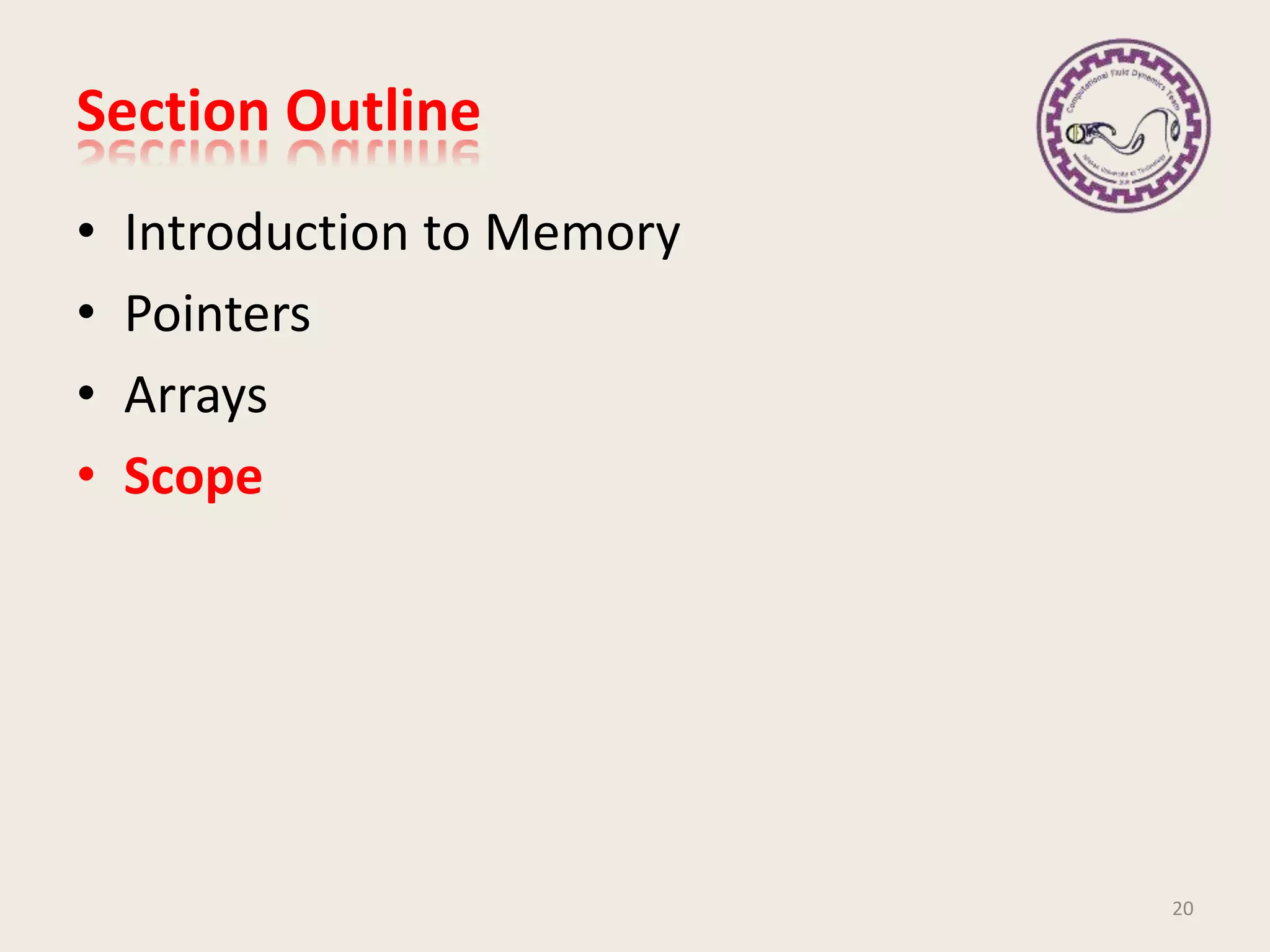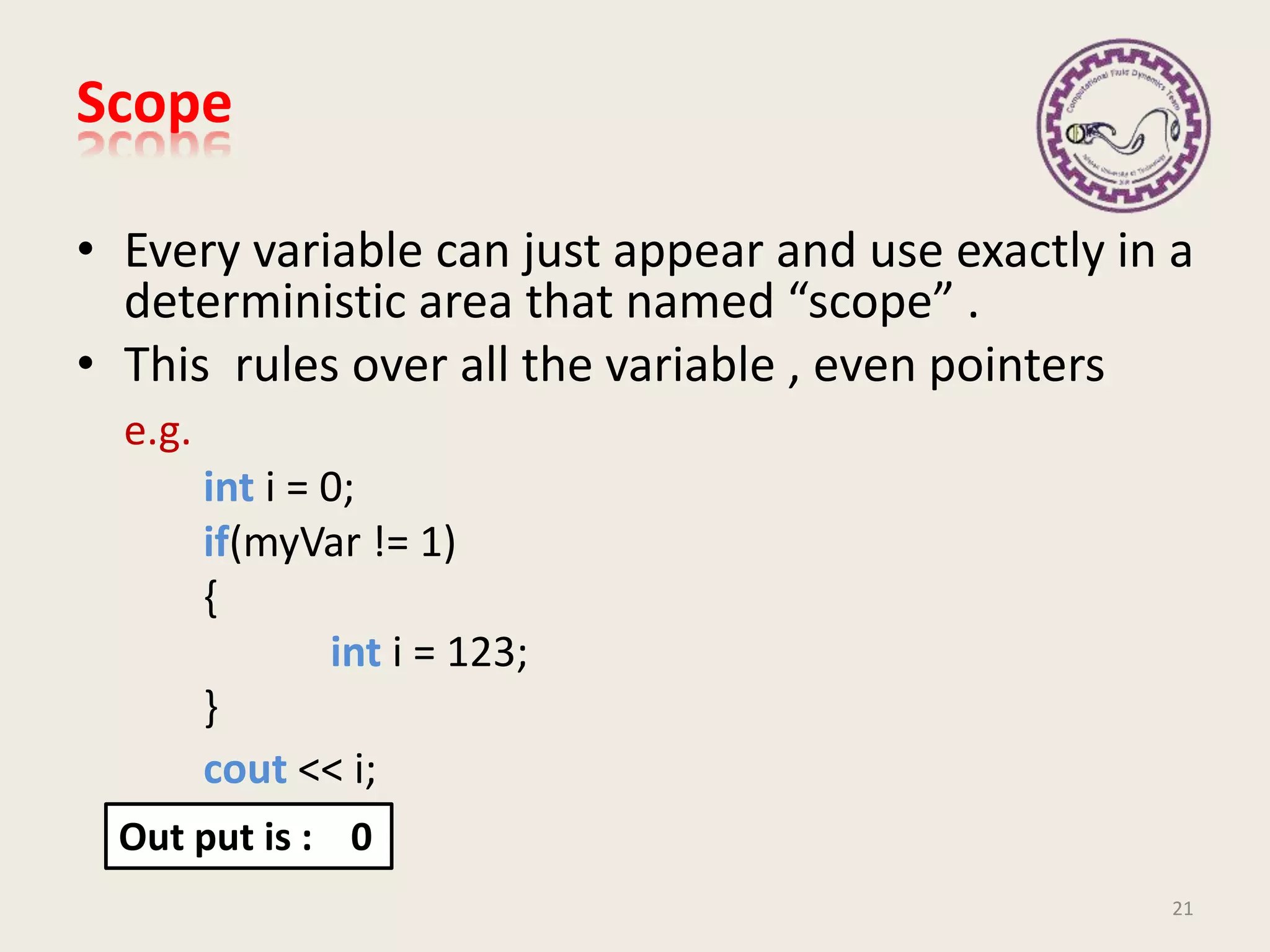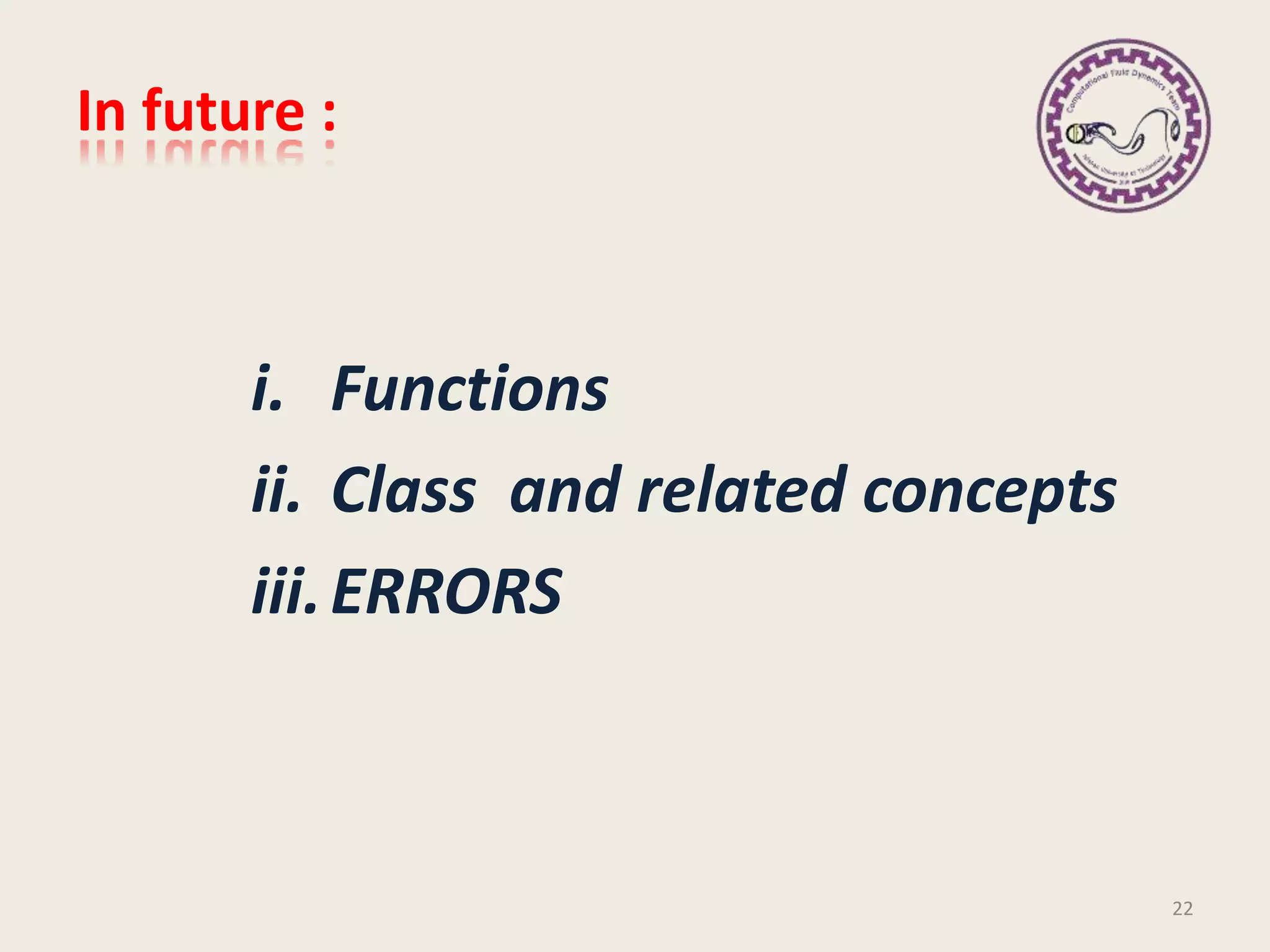This document discusses pointers and memory in C++. It begins with an introduction to memory and pointers, explaining that pointers are memory addresses. It then covers arrays, noting that arrays are stored continuously in memory and an array name represents the starting memory address. The document also discusses pointer operations like dereferencing with * and incrementing with ++. Finally, it discusses scope, which is the region of code where a variable is accessible or visible.



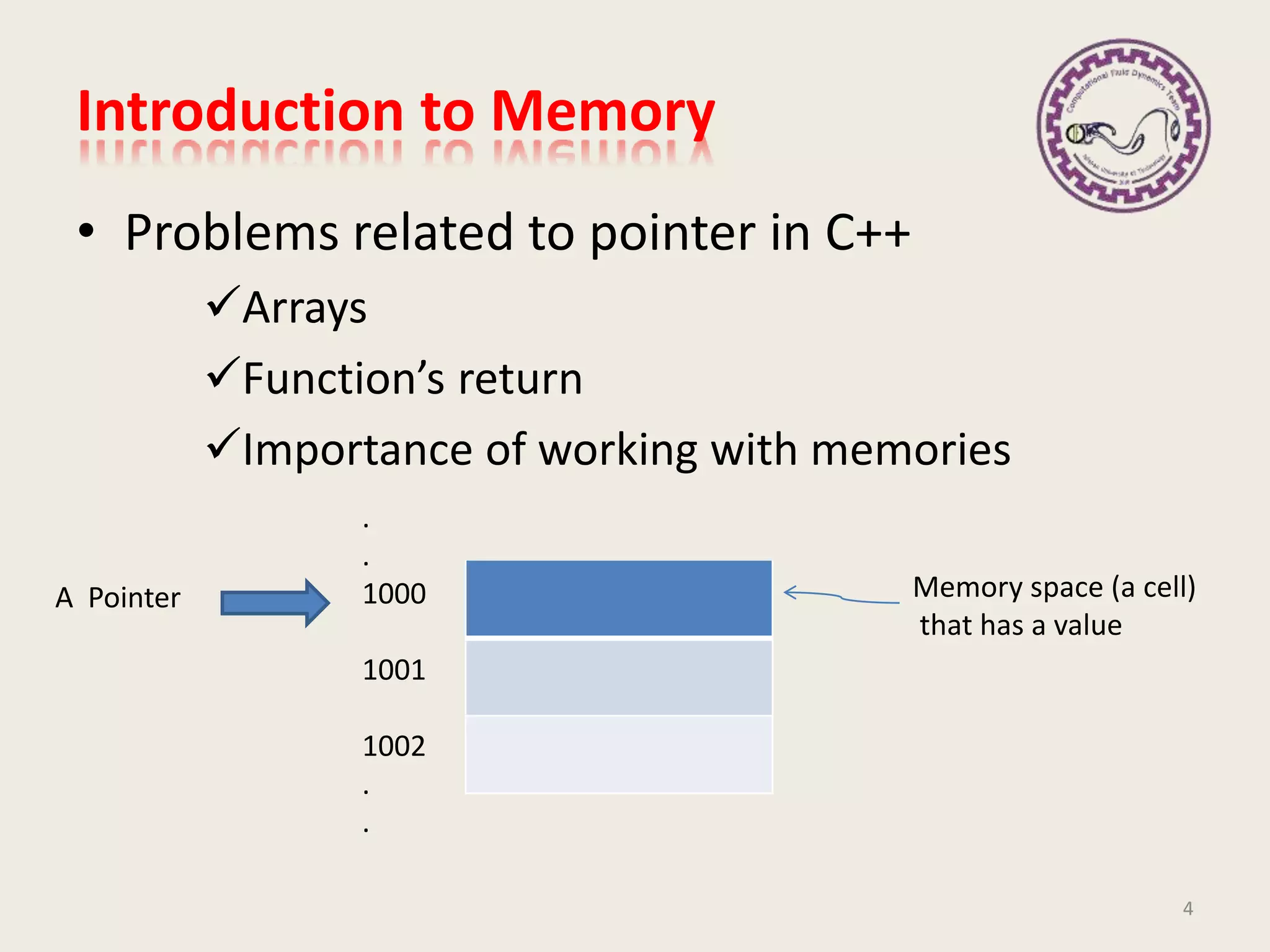
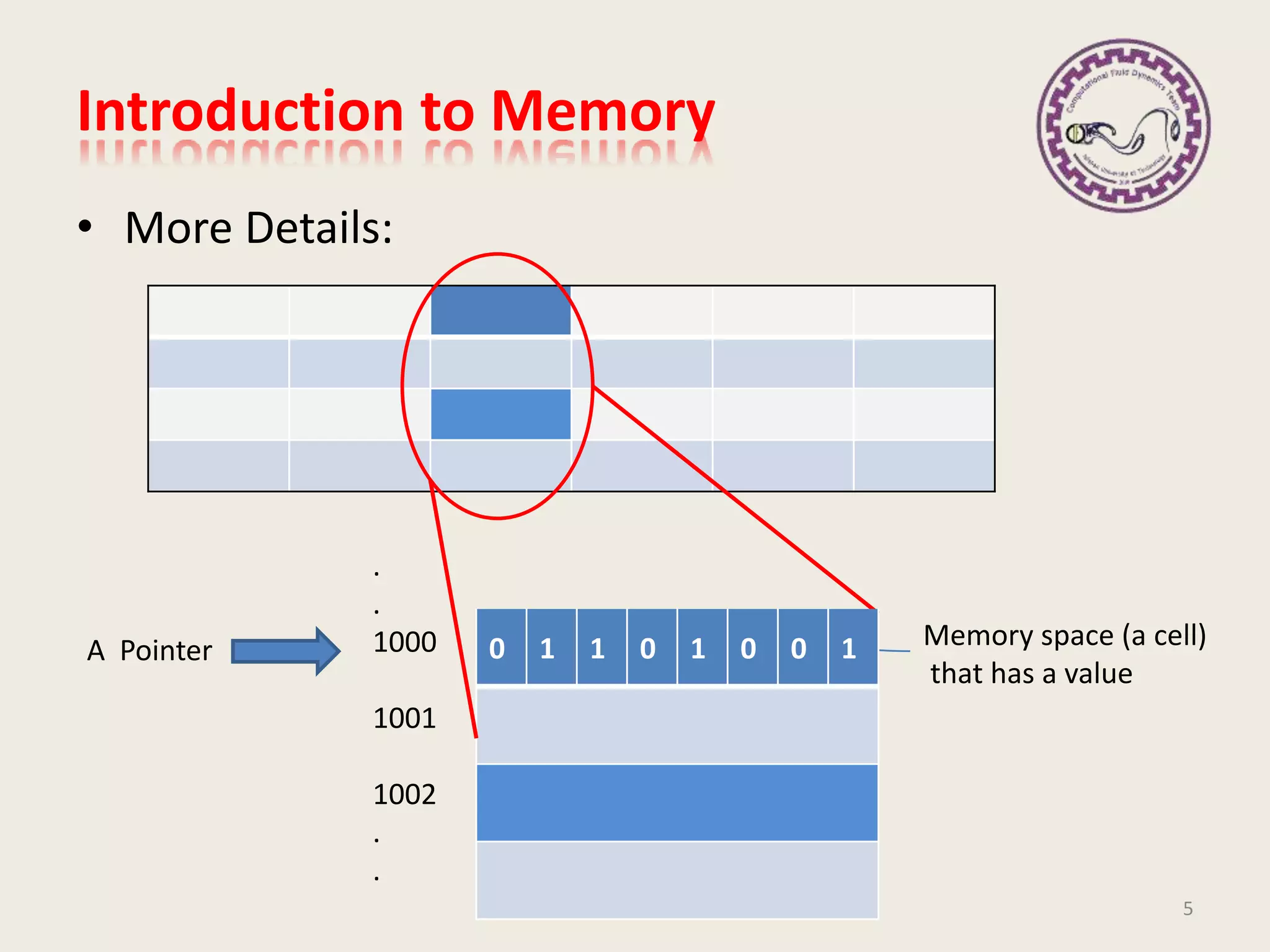
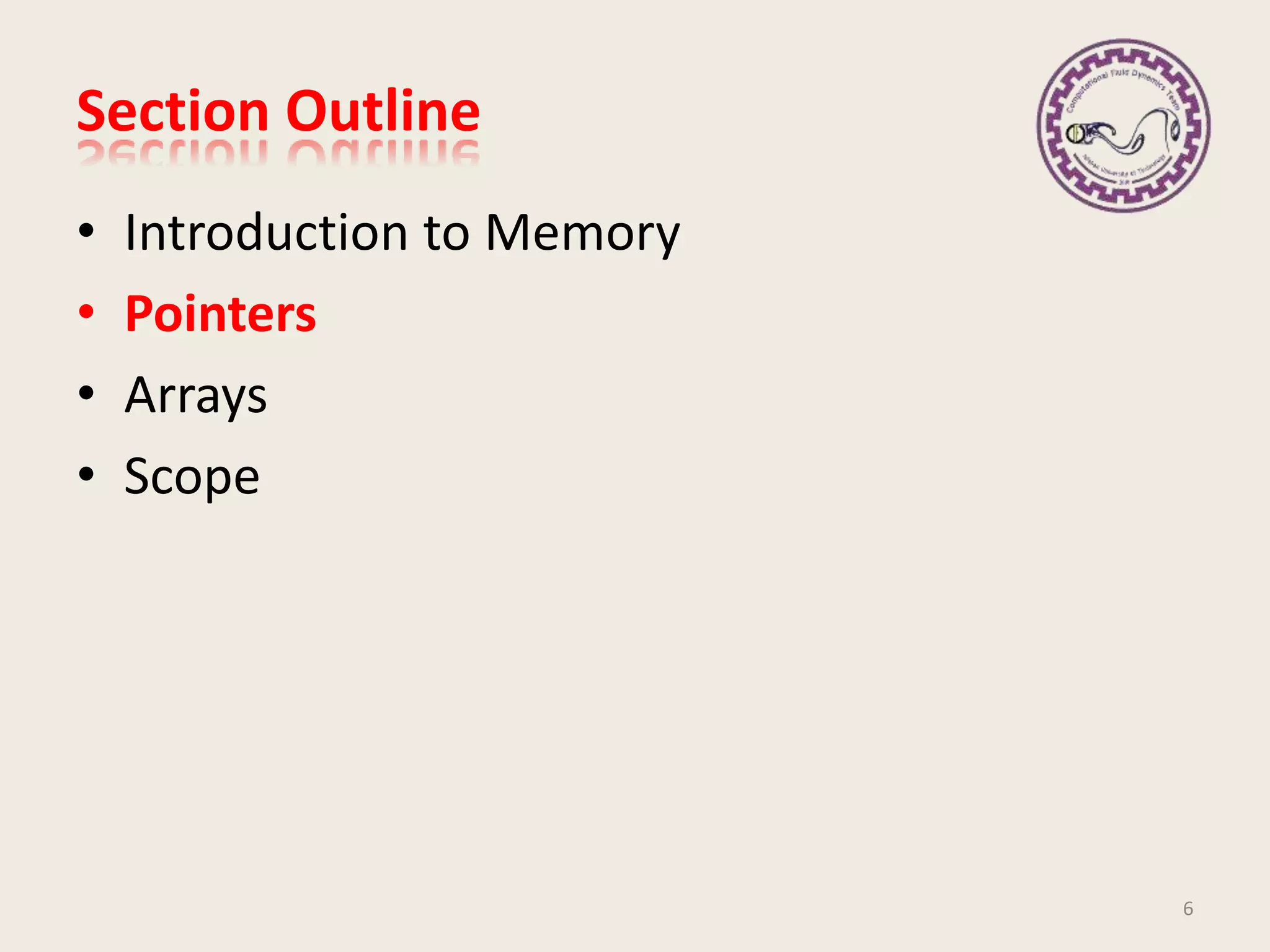

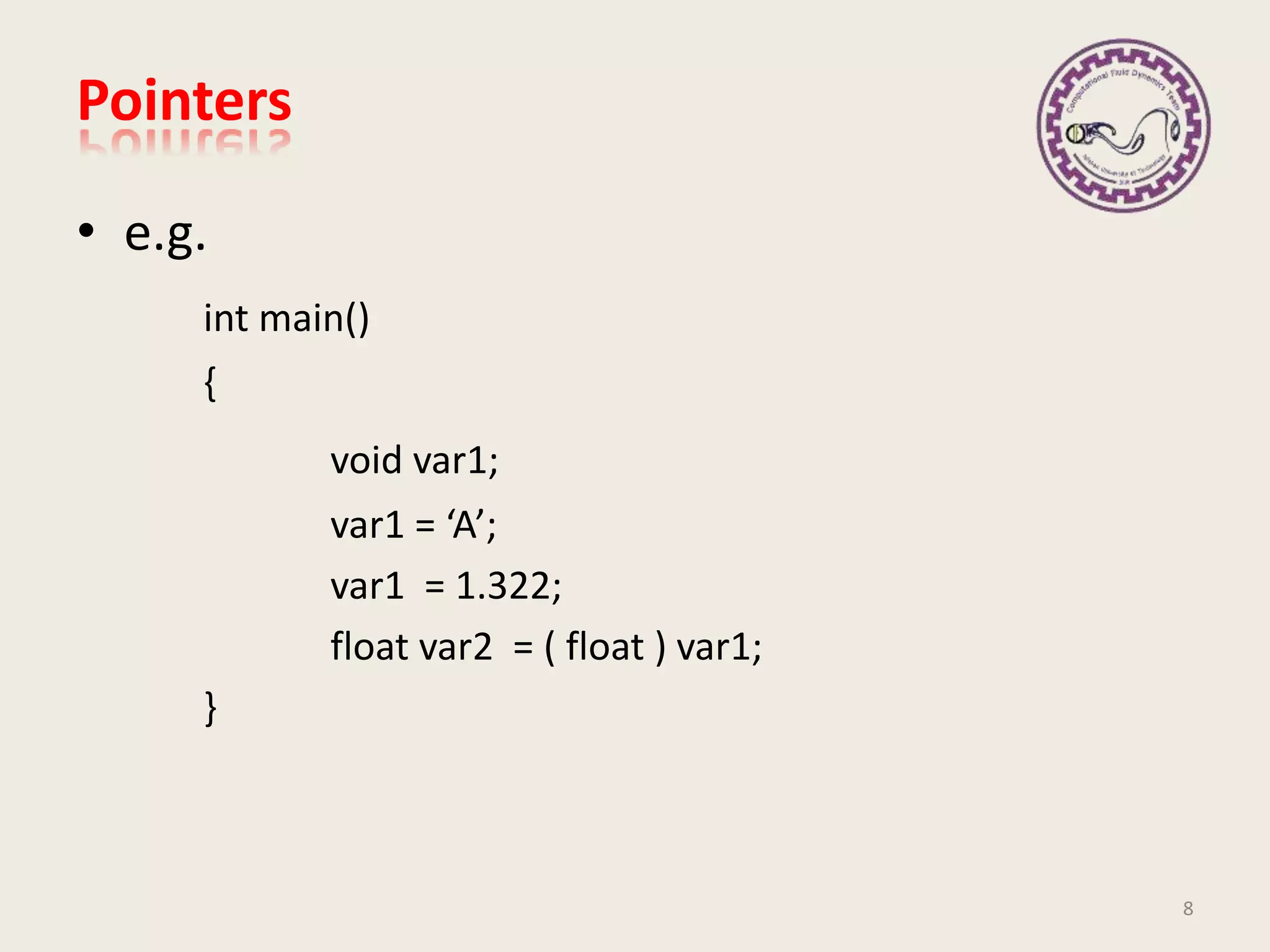
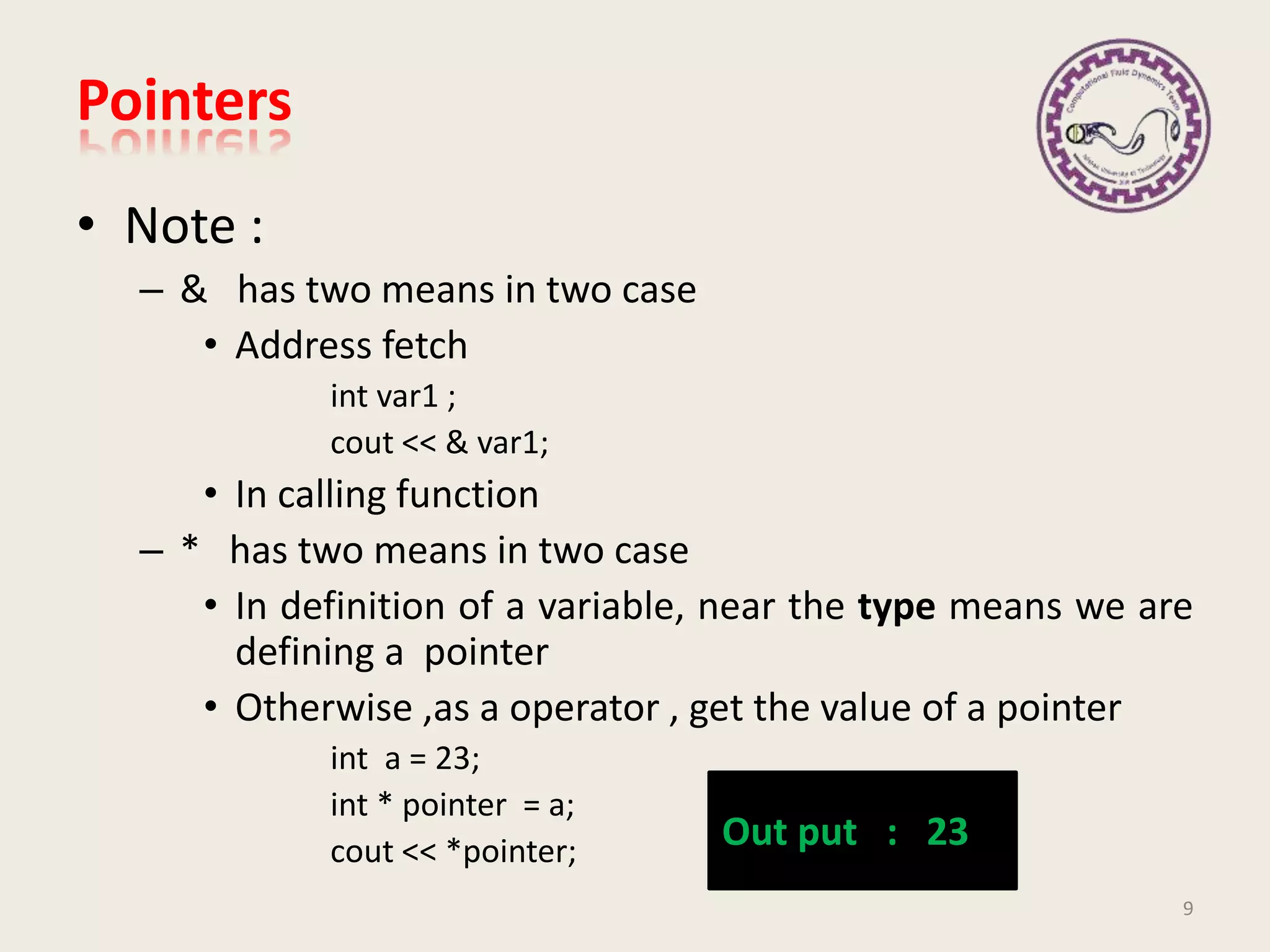
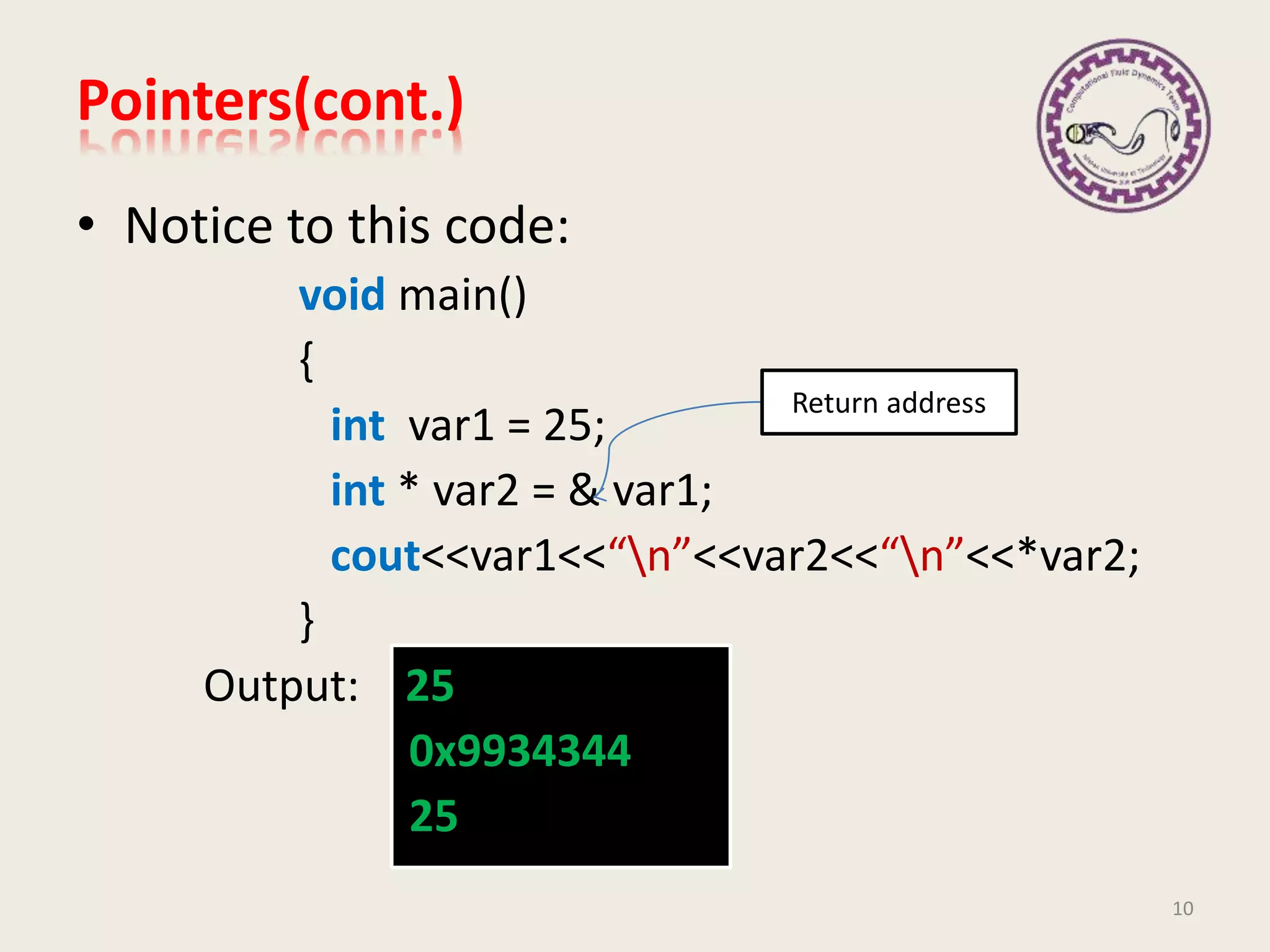
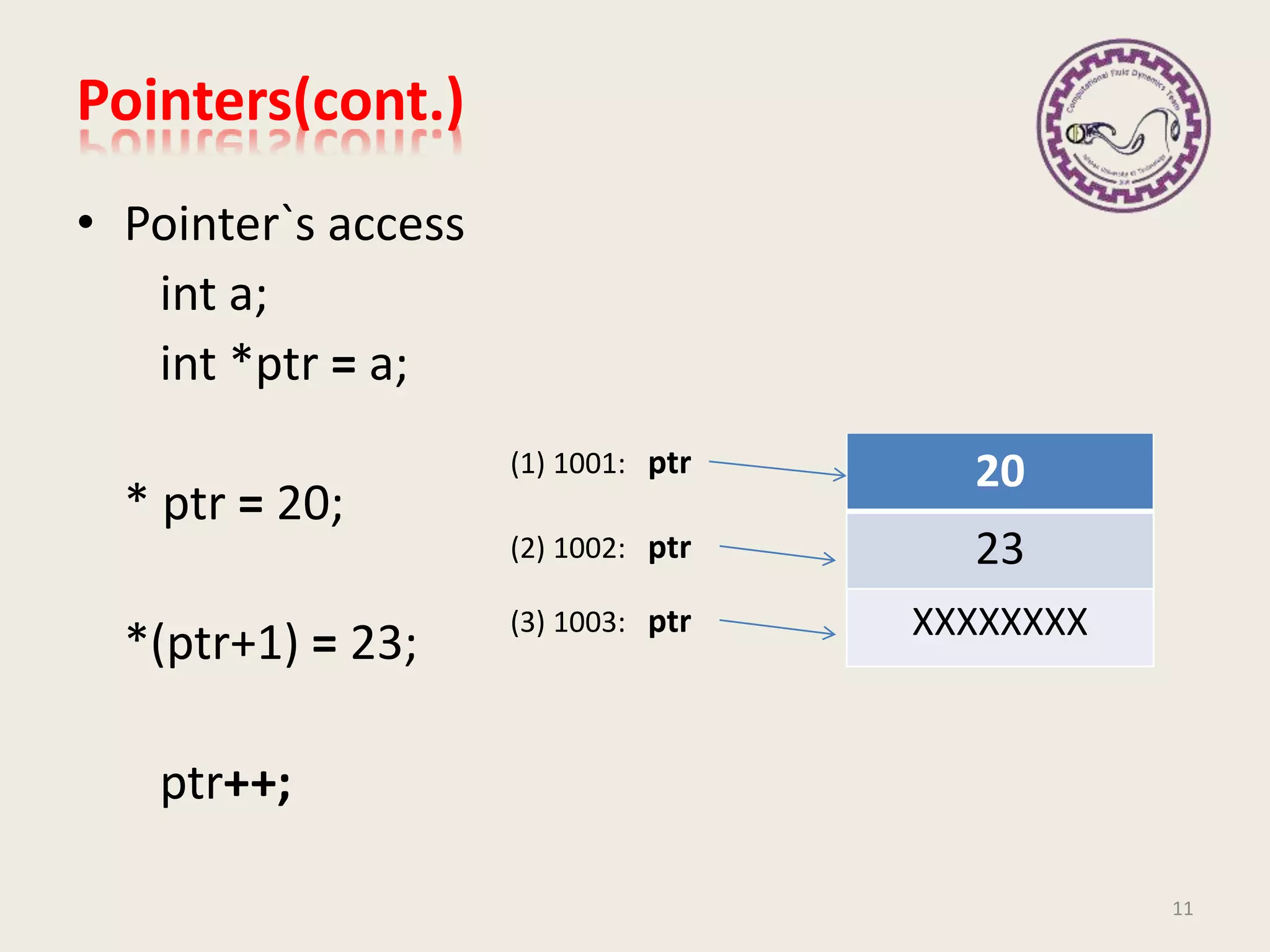
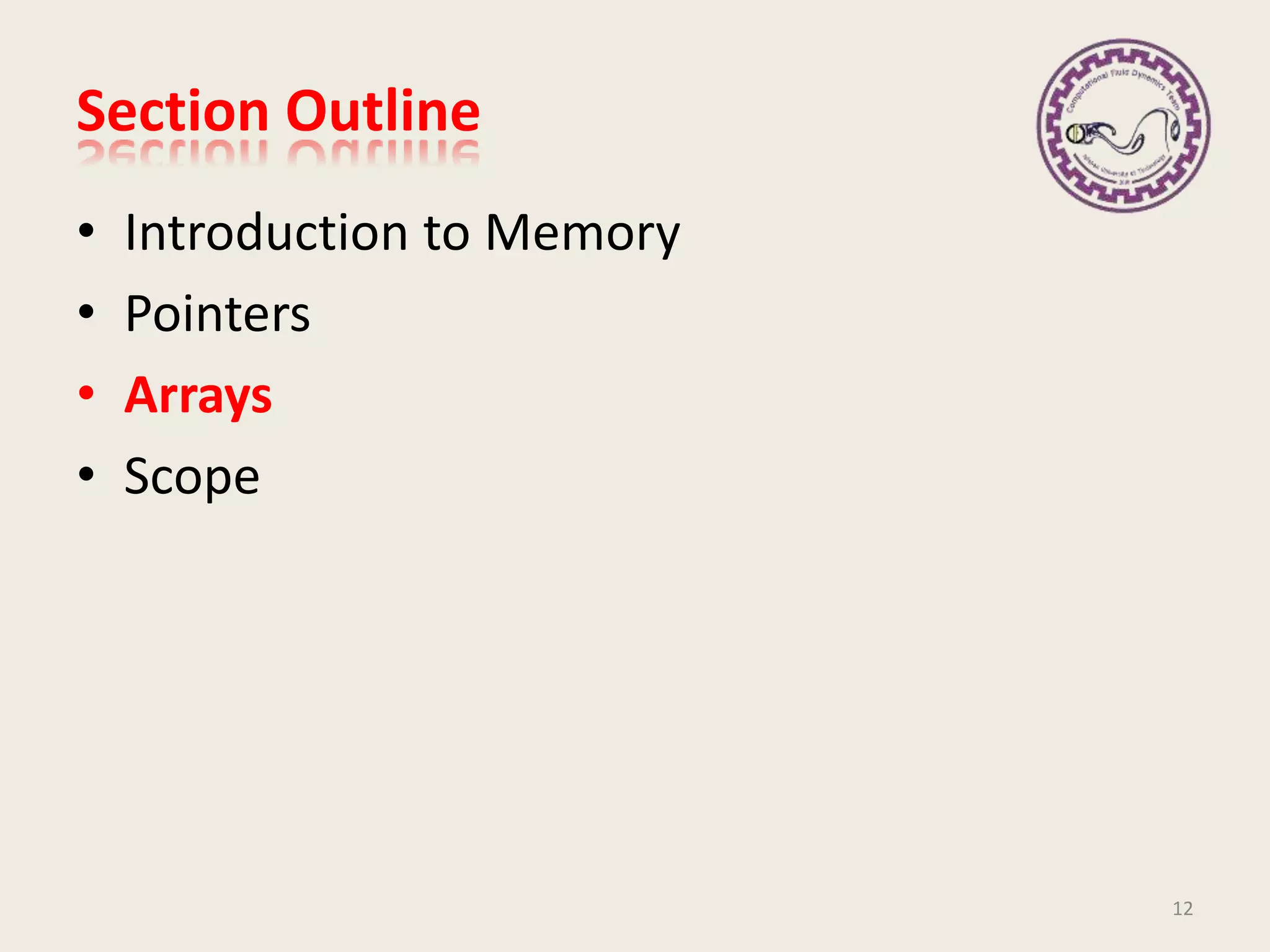
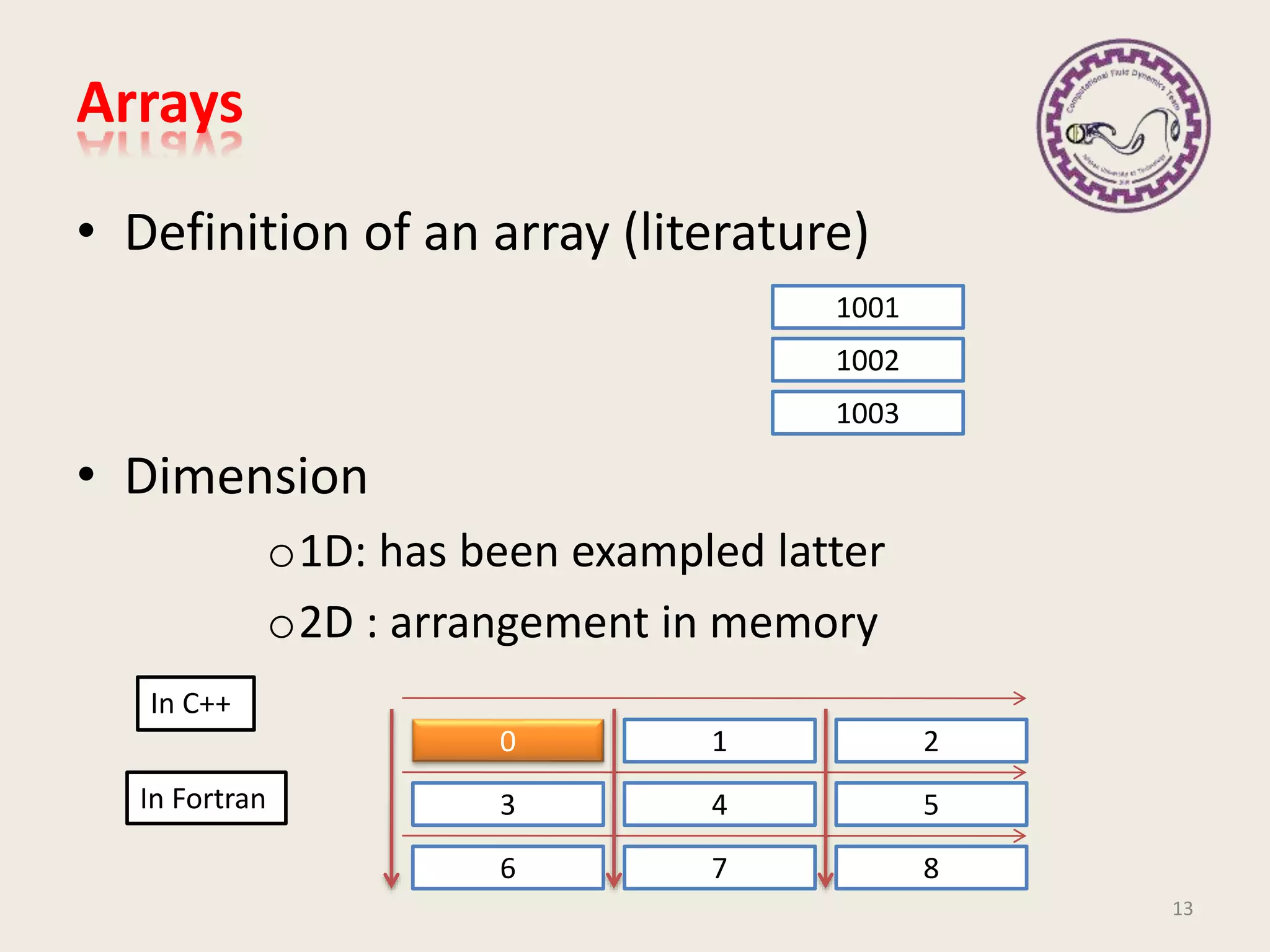
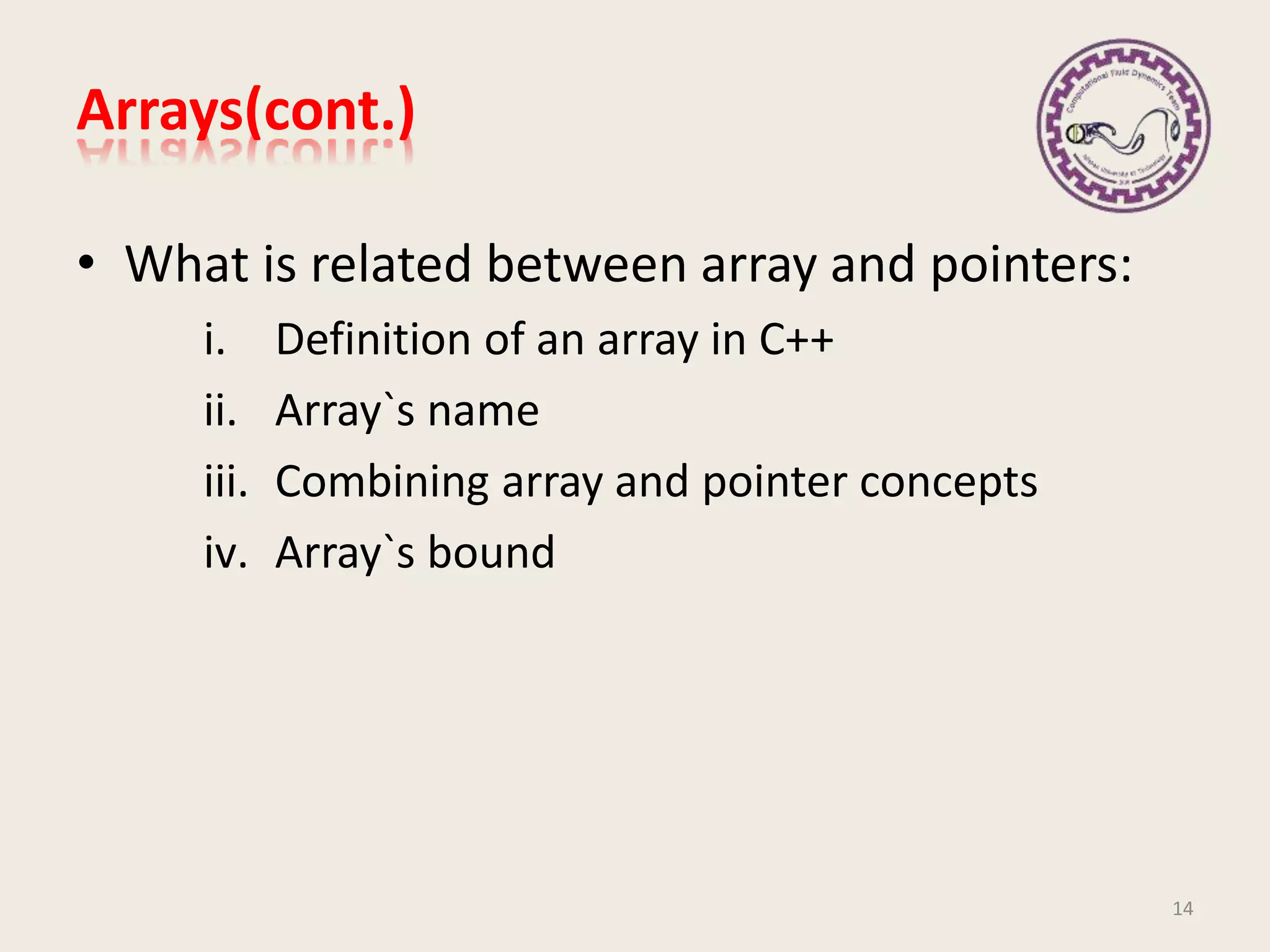
![i. Definition of an array in C++
type Name[dimensions];
int Ar_name[5];
int Ar_name[10][20];
Note : if we define an array with 5 cell then C++ count them from
zero.
(for , while, do while)
First things in C++ usually
has the zero number.
15
Cell No. 0
Cell No. 1
Cell No. 2
Cell No. 3
Arrays(cont.)](https://image.slidesharecdn.com/pointersinc-160306170903/75/Learning-C-Pointers-in-c-2-15-2048.jpg)
![ii. Array`s name!
array`s name has the address of the first cell in the memory.
int myArray[5];
int * myPtr = myArray;
int myArray[5]; int counter = 0;
int counter = 0;
for(; counter< 5; counter++) for(; counter< 5; counter++)
{ {
} }
16
myArray[counter]
= counter;
myPtr[counter]
= counter;
Arrays(cont.)](https://image.slidesharecdn.com/pointersinc-160306170903/75/Learning-C-Pointers-in-c-2-16-2048.jpg)
![iii. Combining array and pointer concepts
define a pointer : int ptr[];
iv. Array`s bound
In C++ we must be cautious about array boundaries(otherwise a
Exception appear)
17
0
1
2
1000(my_array)
1001
1002(my_array+2)
?????
Arrays(cont.)](https://image.slidesharecdn.com/pointersinc-160306170903/75/Learning-C-Pointers-in-c-2-17-2048.jpg)
![• Initializing array
It`s related to use to initializing an array or not , but it`s
better to initialize arrays, specially in calculation cases
How to initialize an array
» int numbers[4] = {1, 3, 708, -12};
» float floats[3][2] = {{1.0,5.0},{0.5,3.1},{6,0.15}};
» char myArray [5] = {‘A’,’b’,’E’,’d’,’q’};
» Do this in a loop by initialize each after another
int myArray[10][5];
for(int i=0; i<10; i++)
for(int j=0; i<5; j++)
myArray[i][j] = 0;
18
Every where in C++ we can define a
variable
At some commands such as for, if, while,
do while the line just after them do not
need { } (or the first command after
these has impressed by themselves)
Arrays(cont.)](https://image.slidesharecdn.com/pointersinc-160306170903/75/Learning-C-Pointers-in-c-2-18-2048.jpg)
![• Note:accolade
int myArray[5]; int myArray[5];
int counter = 0; int counter = 0;
for(; counter< 5; counter++) for(; counter< 5; counter++)
{
}
19
myArray[counter]
= counter; myPtr[counter]
= counter;
A = B+1;
Arrays(cont.)](https://image.slidesharecdn.com/pointersinc-160306170903/75/Learning-C-Pointers-in-c-2-19-2048.jpg)
